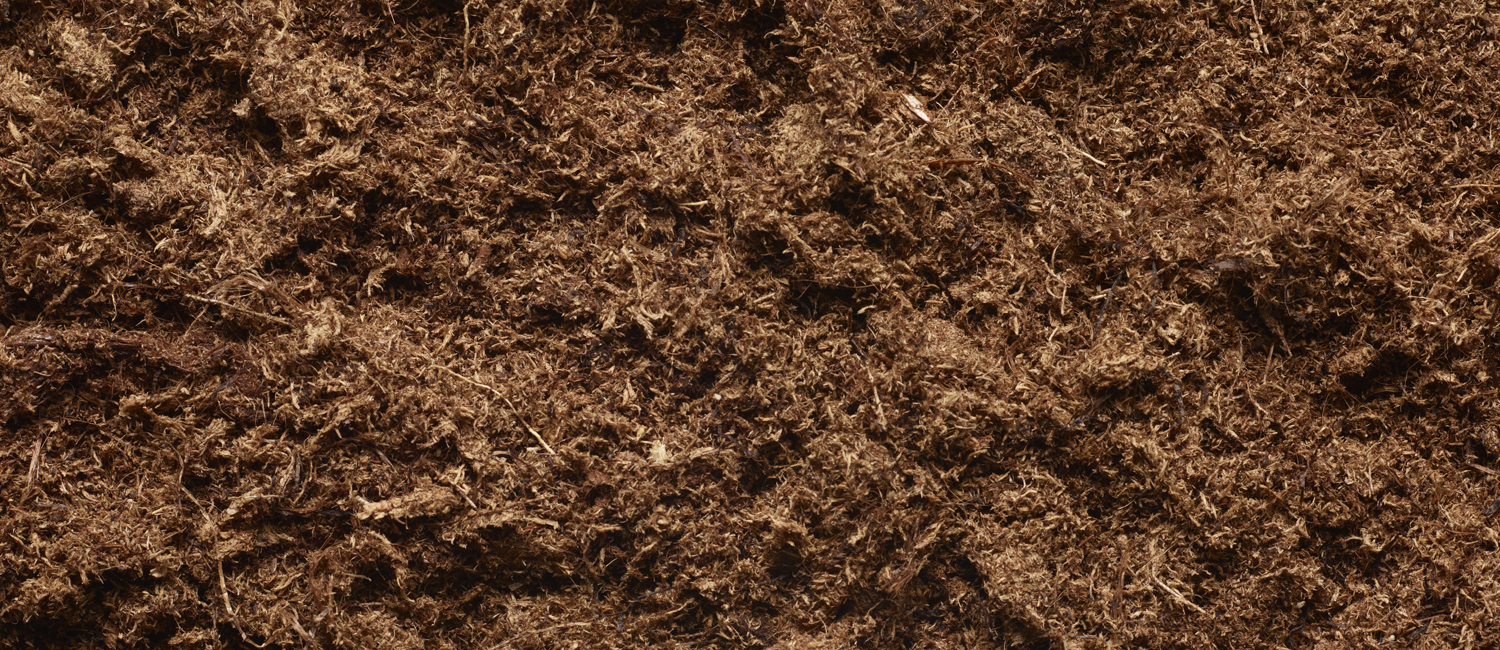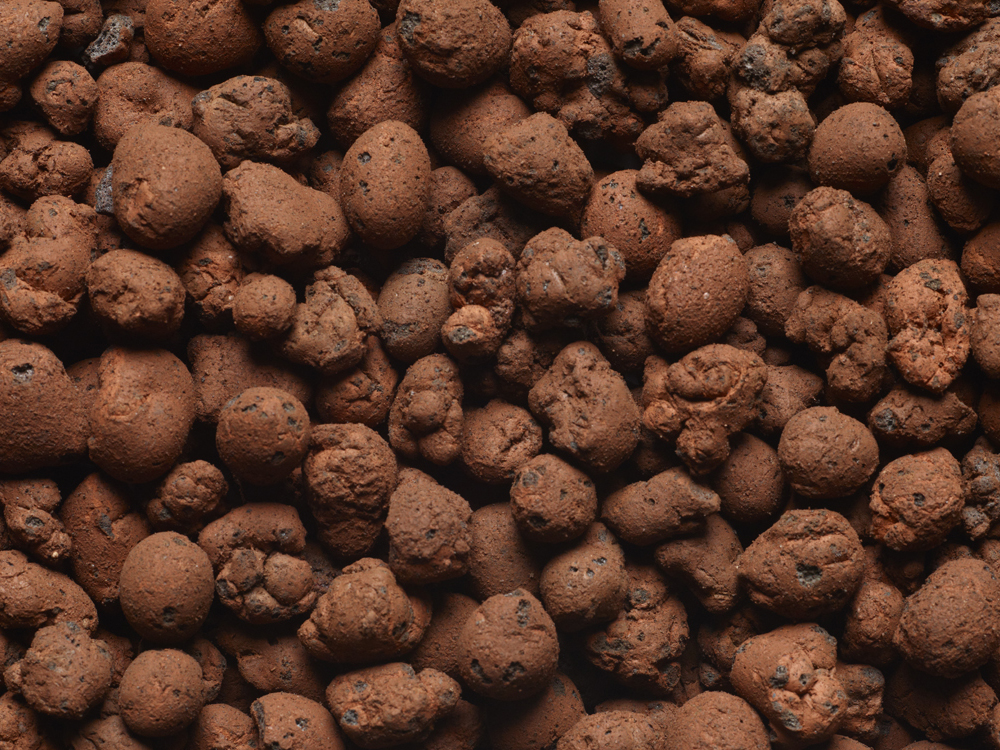Swedish clay
 An important auxiliary substance for high-quality substrate mixtures is Swedish plateau clay. Jongkind uses Swedish clay of two sieve fractions: the standard clay of 0-2.8 mm and a finer sieve fraction granulate of 0-1 mm. We prefer this Swedish clay to many other types of clay because it is entirely free of weeds and pathogens after it has been heated to 80°C.
An important auxiliary substance for high-quality substrate mixtures is Swedish plateau clay. Jongkind uses Swedish clay of two sieve fractions: the standard clay of 0-2.8 mm and a finer sieve fraction granulate of 0-1 mm. We prefer this Swedish clay to many other types of clay because it is entirely free of weeds and pathogens after it has been heated to 80°C.
Swedish plateau clay is very reliable and has a high CEC-buffering capacity. This particular type of clay consists largely of montmorillonite clay minerals. It is sticky and improves the binding power of substrates, thus preventing or minimising the leaching of nutrients. 60-100 kg/m³ of the finest sieve fraction moreover ensures faster absorption of water every time the substrate is rewatered.
Bark
 Jongkind’s bark comes from Pinus pinaster trees from France and Portugal. Hardness is our main criterion in selecting our bark. We also pay a lot of attention to hygiene, ensuring that the bark is always steamed and sieved. Fractioning and mixing two types of bark enables us to guarantee uniform supplies. Bark provides a certain organic skeleton in a peat substrate’s structure, ensuring good stability and drainage.
Jongkind’s bark comes from Pinus pinaster trees from France and Portugal. Hardness is our main criterion in selecting our bark. We also pay a lot of attention to hygiene, ensuring that the bark is always steamed and sieved. Fractioning and mixing two types of bark enables us to guarantee uniform supplies. Bark provides a certain organic skeleton in a peat substrate’s structure, ensuring good stability and drainage.
Perlite
 Perlite is a volcanic silicate (glassy rock) that is first purified and crushed to various gradations. Extreme heating of perlite ore to 950°C causes the enclosed water molecules to evaporate and the perlite to expand. It may expand to twenty times its original volume (rather like transforming maize into popcorn). The process ends with the formation of white, porous, light granules.
Perlite is a volcanic silicate (glassy rock) that is first purified and crushed to various gradations. Extreme heating of perlite ore to 950°C causes the enclosed water molecules to evaporate and the perlite to expand. It may expand to twenty times its original volume (rather like transforming maize into popcorn). The process ends with the formation of white, porous, light granules.
Perlite is an environmentally friendly product with a rough surface and an open structure, enabling the granules to contain a lot of air and absorb moisture – ideal for use as an auxiliary substance in various high-quality Jongkind substrates intended for applications in which fast drainage is an important requirement.
The rough structure of perlite can refine a soft sphagnum peat.
Vermiculite
 Vermiculite is a magnesium-aluminium silicate. In terms of its appearance and chemical composition it is very similar to mica. Vermiculite ore ranks among the phyllosilicate minerals and consists of thin golden sheets with a layered structure. The mineral is purified and sieved into different gradations. During the exfoliation process, which is carried out in a special furnace at a temperature of around 1200°C, the water bound between the sheets evaporates, forcing the sheets apart without destroying their cohesion. This results in a soft, harmonica-shaped structure containing many air cells.
Vermiculite is a magnesium-aluminium silicate. In terms of its appearance and chemical composition it is very similar to mica. Vermiculite ore ranks among the phyllosilicate minerals and consists of thin golden sheets with a layered structure. The mineral is purified and sieved into different gradations. During the exfoliation process, which is carried out in a special furnace at a temperature of around 1200°C, the water bound between the sheets evaporates, forcing the sheets apart without destroying their cohesion. This results in a soft, harmonica-shaped structure containing many air cells.
Vermiculite is an environmentally friendly product that can retain moisture very well on top of its high air capacity.







